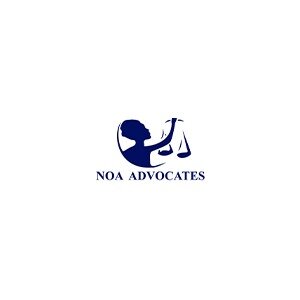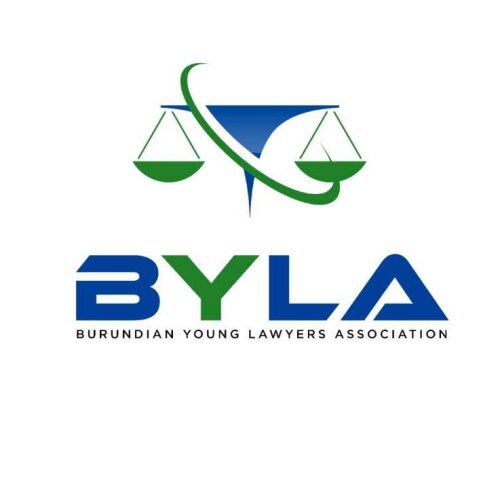Best Tax Increment Financing Lawyers in Bujumbura
Share your needs with us, get contacted by law firms.
Free. Takes 2 min.
List of the best lawyers in Bujumbura, Burundi
About Tax Increment Financing Law in Bujumbura, Burundi
Tax Increment Financing (TIF) is a financial tool that has been used in Bujumbura, Burundi, to encourage economic development and improve urban areas. Essentially, TIF involves capturing the future tax benefits of real estate improvements to pay for the present cost of those improvements. This financing approach is designed to stimulate private investment by using the increased property tax revenue generated by urban development initiatives to fund necessary infrastructure or other public projects. In Bujumbura, TIF is particularly important for efforts aimed at reviving underdeveloped areas and boosting local economies. Understanding the complexities of TIF laws is crucial for stakeholders seeking to participate in such development endeavors.
Why You May Need a Lawyer
Legal assistance is often necessary for navigating the complexities inherent in Tax Increment Financing. Common situations where you might require a lawyer include:
- When drafting or reviewing TIF agreements to ensure they comply with local laws and regulations.
- Understanding the eligibility criteria and process for applying for TIF incentives in Bujumbura.
- Assisting with negotiations between developers, public entities, and other stakeholders to ensure fair terms.
- Advising on the potential tax implications and financial structuring of projects leveraging TIF.
- Handling any disputes or legal challenges that may arise during the implementation of TIF projects.
Local Laws Overview
The legislation governing Tax Increment Financing in Bujumbura is designed to promote urban renewal and economic development. Key aspects include:
- The establishment of TIF districts, which are designated areas where tax increment from real estate developments can be used for public infrastructure.
- Regulations detailing the eligibility requirements for projects and the process for applying and approving TIF funding.
- Guidelines for how TIF funds can be allocated to various infrastructure projects or used to directly support private investment.
- Specific limits on the percentage of tax revenue that can be redirected into TIF projects to ensure fiscal responsibility.
Frequently Asked Questions
What is Tax Increment Financing?
Tax Increment Financing (TIF) is a public financing method that is used as a subsidy for redevelopment, infrastructure, and other community-improvement projects.
How does TIF work in Bujumbura?
In Bujumbura, TIF works by allowing the city to freeze property tax rates at a baseline level, using the future incremental increase in tax revenues generated by redevelopment to finance infrastructure projects.
Who can apply for TIF in Bujumbura?
Developers, municipalities, and other stakeholders involved in eligible development projects can apply for TIF funding, provided they meet the criteria set by local regulations.
What types of projects are eligible for TIF?
Projects that are eligible for TIF usually involve infrastructure improvements, community redevelopment, or efforts aimed at boosting economic development in underdeveloped areas.
Are there any risks associated with TIF?
While TIF can be a powerful tool for development, risks include potential increases in property taxes for residents, displacement due to redevelopment, and financial strain if the projected tax increment does not materialize.
How is TIF funding repaid?
TIF funding is repaid from the additional tax revenue generated by increased property values within the TIF district, without raising taxes.
What is the duration of a TIF district in Bujumbura?
The duration of a TIF district in Bujumbura typically ranges from 15 to 23 years, after which the property taxes are collected at standard rates.
How does TIF benefit a community?
TIF benefits communities by stimulating urban revitalization, creating jobs, attracting private investment, and improving public infrastructure, without increasing direct tax burdens on citizens.
Are there any alternatives to TIF for financing development?
Alternatives may include traditional municipal bonds, grants, or private investment without public incentives.
How can a lawyer help with navigating TIF legislation?
A lawyer can provide crucial guidance on legal compliance, aid in drafting and negotiating agreements, and offer representation in disputes or negotiations concerning TIF projects.
Additional Resources
Here are some resources that can be helpful for those seeking legal advice on Tax Increment Financing in Bujumbura:
- Ministry of Urban Development and Public Works: Provides regulatory guidance and oversight of urban projects.
- Bujumbura City Council: Offers information on local TIF districts and application procedures.
- Local legal associations: Can recommend experienced lawyers specializing in development law and finance.
Next Steps
If you need legal assistance with Tax Increment Financing in Bujumbura, consider the following steps:
- Conduct initial research to identify legal professionals with expertise in TIF and local development laws.
- Schedule consultations with potential lawyers to discuss your specific needs and evaluate their experience with TIF cases.
- Prepare relevant documents, such as development proposals or correspondence, to facilitate a more in-depth legal consultation.
- Consider joining local development or business forums where you can connect with other stakeholders and gain further insights.
Lawzana helps you find the best lawyers and law firms in Bujumbura through a curated and pre-screened list of qualified legal professionals. Our platform offers rankings and detailed profiles of attorneys and law firms, allowing you to compare based on practice areas, including Tax Increment Financing, experience, and client feedback.
Each profile includes a description of the firm's areas of practice, client reviews, team members and partners, year of establishment, spoken languages, office locations, contact information, social media presence, and any published articles or resources. Most firms on our platform speak English and are experienced in both local and international legal matters.
Get a quote from top-rated law firms in Bujumbura, Burundi — quickly, securely, and without unnecessary hassle.
Disclaimer:
The information provided on this page is for general informational purposes only and does not constitute legal advice. While we strive to ensure the accuracy and relevance of the content, legal information may change over time, and interpretations of the law can vary. You should always consult with a qualified legal professional for advice specific to your situation.
We disclaim all liability for actions taken or not taken based on the content of this page. If you believe any information is incorrect or outdated, please contact us, and we will review and update it where appropriate.












